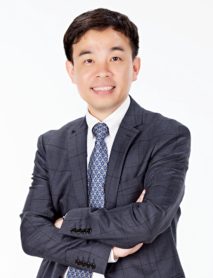Imbalanced Data Learning: Always Needed?
23 August 2022 (Tuesday)
10:00-11:00AM (Beijing Time, GMT+8)
Online via Tencent Meeting
Organized by the IEEE Computational Intelligence Society Shenzhen Chapter.
Activity Aim & Talk
In this virtual activity, Professor Yiu-ming Cheung from Hong Kong Baptist University will deliver a talk on imbalanced data learning — In many practical problems, the number of data forming different classes can be quite imbalanced, which could make the performance of most machine learning methods become deteriorate to a certain degree. In general, the problem of learning from imbalanced data is nontrivial and challenging in the fields of machine learning and data science, which has attracted growing attention in recent years. In this talk, we will first introduce the class imbalanced learning and its related techniques. Then, whereas the class imbalance is quite common from the practical perspective, we will attempt to address the problem that naturally arises: When should such a class imbalance be taken into account in the machine learning tasks? Furthermore, considering the unavailability of class labels in some applications, this talk will also present our recent work on imbalanced data clustering in an unsupervised learning environment. Lastly, some challenges in this field will be introduced.
Meet the Speaker

Yiu-ming Cheung, is currently a Chair Professor (Artificial Intelligence) of the Department of Computer Science, the Dean of Institute for Research and Continuing Education (IRACE), and an Associate Director of Institute of Computational and Theoretical Studies in Hong Kong Baptist University (HKBU). He received PhD degree from Department of Computer Science and Engineering at The Chinese University of Hong Kong in 2000, and then joined the Department of Computer Science at HKBU in 2001. He is an IEEE Fellow, AAAS Fellow, IET/IEE Fellow, and British Computer Society (BCS) Fellow. He was ranked the World’s Top 1% Most-cited Scientists in the field of Artificial Intelligence and Image Processing by Stanford University in 2020 and 2021, respectively. He was elected as a Distinguished Lecturer of IEEE Computational Intelligence Society in 2020, and the Changjiang Scholar (Chair Professor) awarded by Ministry of Education of China. Also, he is the Editor-in-Chief-Elect of IEEE Transactions on Emerging Topics in Computational Intelligence.
